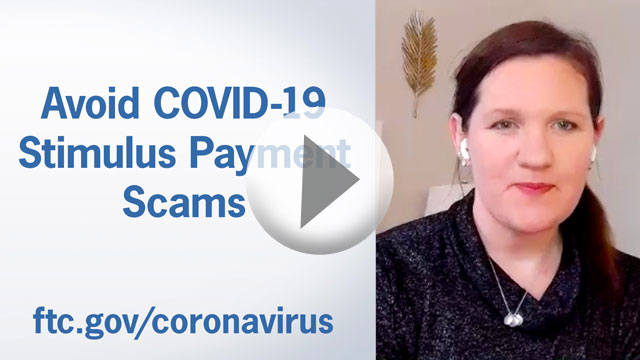The pandemic is still taking a toll on your customers, your employees – and your business. The new American Rescue Plan, just signed into law, gets the ball rolling to help out on many people’s financial well-being. Payments will soon be coming by direct deposit, checks, or a debit card to people eligible for the payment. You can learn more about who’s eligible, and the timing, at IRS.gov/coronavirus. Share that link with your staff to help keep them informed. But let me tell you what will NOT happen, so you can spot and avoid the scammers who are right now crawling out from under their rocks.
- The government will never ask you to pay anything up front to get this money. That’s a scam. Every time.
- The government will not call/text/email/DM you to ask for your Social Security, bank account, or credit card number. Anyone who does is a scammer.
- Nobody legit will ever — EVER — tell you to pay by gift card, cryptocurrency, or wire transfer through companies like Western Union or MoneyGram. You know who will tell you to pay like that? A scammer.
Also, let your HR staff know that the new law also has some language about health insurance, temporarily increasing subsidies for newly laid-off people and for many people buying their own health insurance through the Affordable Care Act (ACA). Please re-read #1-3, above, because they apply here, too. Nobody legitimate will ever call, text, email, or message you out of the blue about getting or keeping health insurance coverage, or to demand payment or your account numbers. That will always be a scam.
If you spot one of these scams, please tell the Federal Trade Commission at ReportFraud.ftc.gov. We’re doing our best to stop these scammers in their tracks, and your report will help.
Meanwhile, check out this video from Acting Chairwoman Slaughter for tips on avoiding economic impact payment scams.

